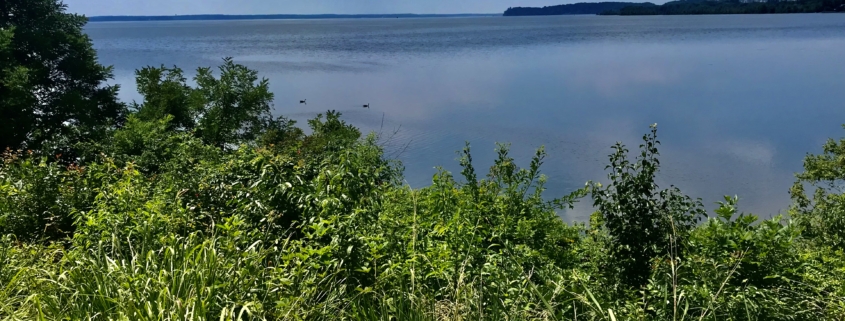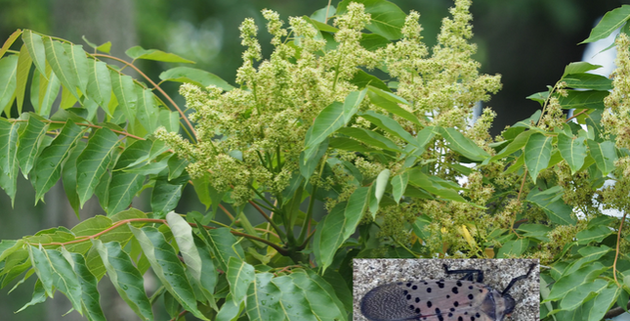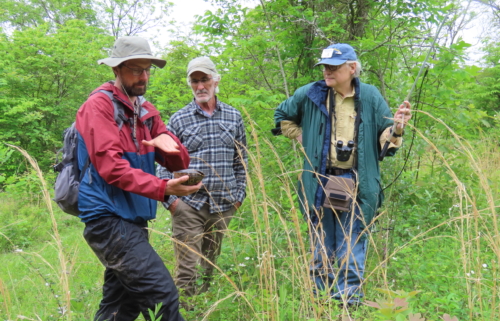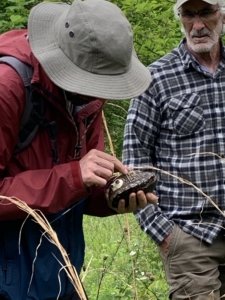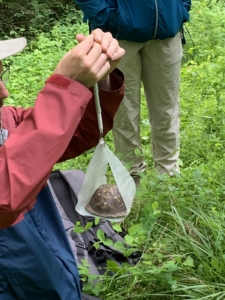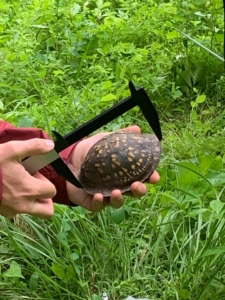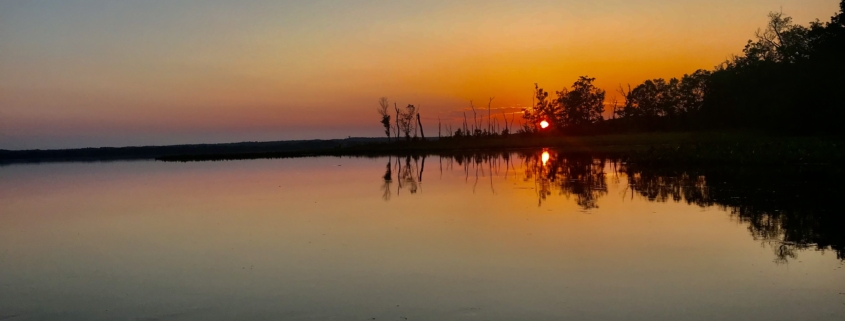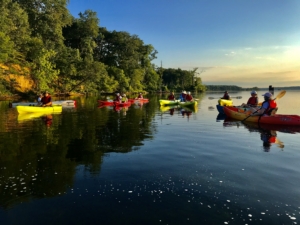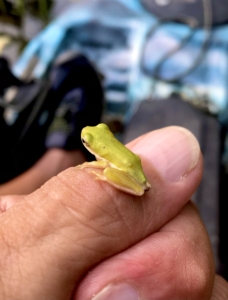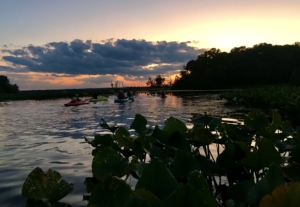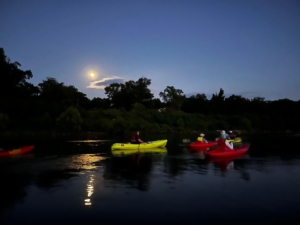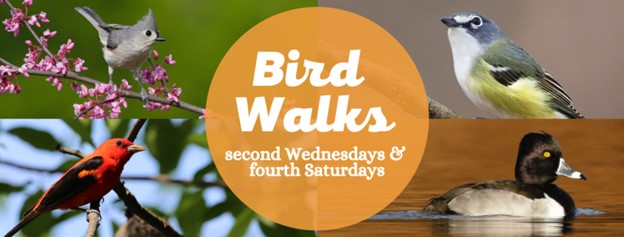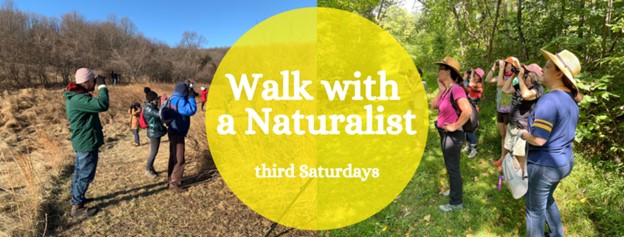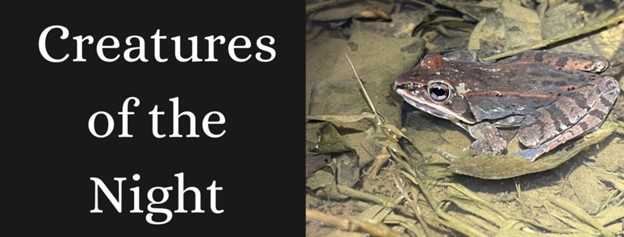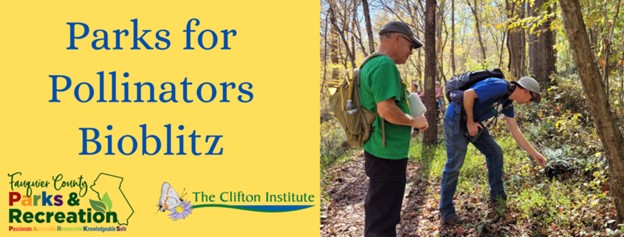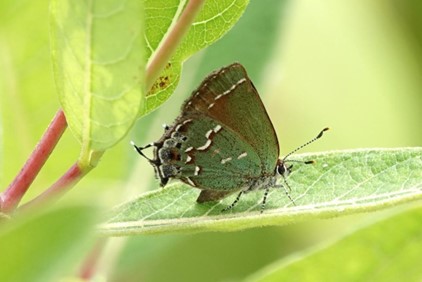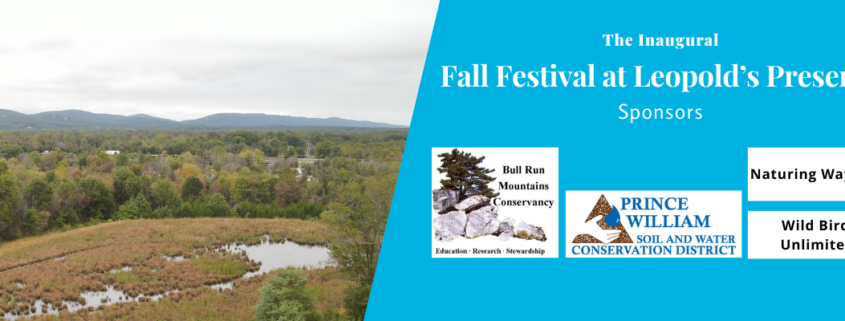Plan Pollination
Cover photo Jerry Nissley
The pollinator garden redux at the Potomac River Occoquan National Wildlife Refuge is certainly not a complete success story yet but the story behind how it got started and kicked off is a complement to success.
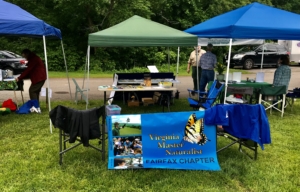
FMN table at Eagle Festival (Photo Jerry Nissley)
Let’s rewind … FMN set up an outreach table the Mason Neck Eagle Festival a few months ago. Near day’s end Gabby Youngken, Visitor Services Specialist at Potomac River NWRC, stopped by to see if FMN could advise them on how to refurbish their on-site pollinator garden. As circumstances would have it Sarah Mayhew had recently established an FMN Chapter Project (CP179) at Mason Neck to do their gardens. With FMN Steph Johnson as technical advisor, Sarah and other FMN members, along with Friends of Mason Neck, developed a phased work and maintenance plan/schedule and were in the midst of working it.
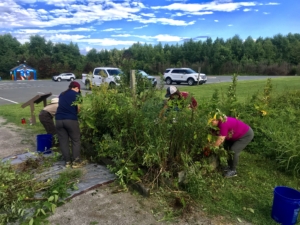
‘Before’ picture (Photo Jerry Nissley)
Fast forward … Because everything was documented the Mason Neck plan was easily extensible to NRWC. Surely since NWRC is directly across Belmont Bay from MNSP it stands to reason they would have the same weeds. Right? FMN sent MNSP plans to NWRC for review; followed up with a site visit to NRWC; met the staff; toured the property; and then tailored the plan for them. We then had to gather a volunteer base to execute the plan. FMN contacted Merrimac Chapter, since they operate in Prince William county. FMN has a frequent volunteer in the NWRC visitor center – he was in. Master Gardeners was interested in helping. NWRC has a few volunteer groups they tap and of course several hard working interns from the American
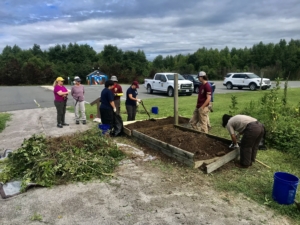
‘After’ picture. Invasives destined for proper disposal. Phase one done. (Photo Jerry Nissley)
Conservation Experience, EPIC Program. With the team set, Gabby picked 8 Aug to kickoff the project. Many hands make short work! Phase one done!
The team was able to save several native plants for reuse, turn the soil to remove roots, and then cover with black plastic (to smother roots) until the scheduled fall planting.
So the ‘success’ to date is really credit to how the group came together as a result of outreach to cooperate and collaborate on a project that benefits our park systems. Stay tuned for more on this effort when it completes.
Bonus factoid: The Potomac River National Wildlife Refuge Complex is a complex of three National Wildlife Refuges in Virginia located along the Potomac River.
The three refuges are:
* Elizabeth Hartwell Mason Neck National Wildlife Refuge
* Featherstone National Wildlife Refuge
* Occoquan Bay National Wildlife Refuge
The first two are administered jointly for planning, while the third is currently treated separately.
The pollinator garden is at the Occoquan Bay site.


